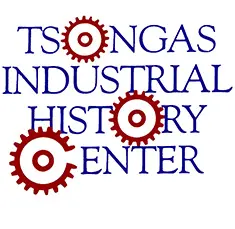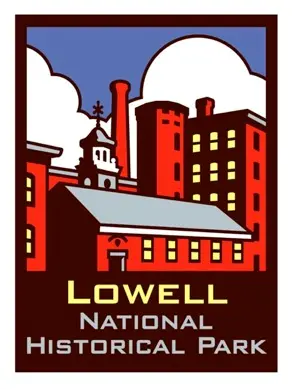Exploring the Immigrant Experience
The Tsongas Industrial History Center's "Yankees and Immigrants" program enables students to "become" real people who emigrated to Lowell in the nineteenth or twentieth century. Upon entering the History Studio, students are given a passport-like role card that tells them about their new immigrant identity. The biographical information on each card came from historical records and oral history interviews.
Students can do their own oral history interviews of immigrant friends, relatives, or members of the community. Conducting such interviews can be an extremely rewarding experience, especially when students observe certain guidelines. Discuss the advice below with students before they conduct an oral history interview. Students can use the sheets that follow to record basic information about the subject of their interview.
Basic Guidelines for Conducting Oral Histories
- Set up a time and a place where you will not be interrupted.
- Record the date of the interview
- Do not ask specific questions; avoid yes or no questions, especially. Instead have in mind some general topics for discussion
- Think of yourself as an ear. Listen carefully to your subject, not saying too much yourself, but gently helping your subject to get his or her story out Have a focus, one that is sufficiently narrow.
- Dig for details. Ask follow-up questions.
- Do not be afraid of small silences
- Do not encourage your subject out loud (avoid saying things like "Uh-huh," "Really?" or "Oh, wow!") especially if you are taping the interview. Instead, encourage by smiling, nodding, leaning in
- If your subject gets off the track, try asking a question like, "Could we go back to what you said about . . . ?" or "I was really interested in what you said about . . ."
- Avoid complicated questions. Ask one question at a time.
- Avoid leading questions (e.g. "Didn't you just love all the new sights?!").
- At the end of the interview, sit and chat for a while. Share some of your personal experiences. Consider taking one or two photographs of your subject.
- After you leave, and as soon as possible, jot your impressions down. If you taped the interview, label the tape and make a back-up copy. Break the tabs on the tapes to avoid accidental erasure.
Conducting Oral Histories - Immigrants
Biographical Information
- Name:
- Date of Birth:
- Country of Birth:
- Age on Arrival:
- Year of Arrival:
- Family Members, Relationships and Ages:
- Relatives left behind in native country:
- Relatives who also came to United States:
Life Before Immigration
- Occupation before immigration:
- Education:
- Holidays, celebrations:
- Geographical setting:
- Reason for Leaving:
- Reason for choosing United States:
In the United States
- First housing in the United States:
- First impressions of United States:
- First job upon arriving in United States:
- Later job(s), education:
- Customs of native country still enjoyed here:
- Hardships encountered in the United States:
- Opportunities enjoyed in the United States:


